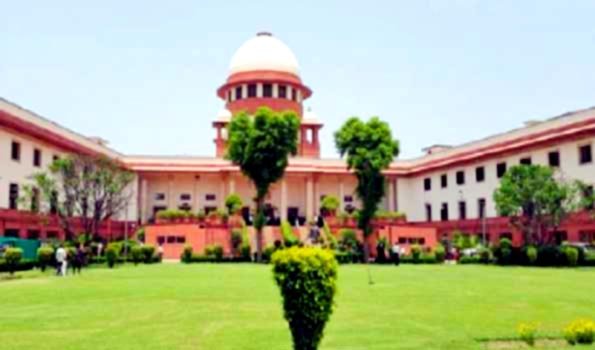New Delhi, July 22 (UNI) The Supreme Court on Monday imposed an interim stay till July 26 on the directions issued by Uttar Pradesh and other States which had ordered eateries along the Kanwar Yatra route to display names of owners and employees. The court noted that enforcing such orders without supporting provisions may infringe upon the secular character of the country.
A bench comprising Justice Hrishikesh Roy and Justice SVN Bhatti, while staying the order to label food stalls, issued notice to the states of Uttar Pradesh, Madhya Pradesh Uttarakhand and others and asked them to give the reasons for imposing such conditions on eatery owners.
The bench while staying the enforcement of the directions issued by various state authorities for the time being said, “Until the authorities file the reply, we deem it appropriate to pass an interim order prohibiting enforcement. In other words, the food sellers, hawkers, etc may be required to display the kind of food they are serving to Kanwariyas but must not be forced to disclose the names,” the court said in its order.
The court, however, said that the eateries may only be asked to display a list of food items.
The Bench was hearing a batch of petitions challenging the Uttar Pradesh government order directing eateries along the Kanwar Yatra route to display owners’ names.
The Court asked whether any formal order had been passed to enforce such direction.
Senior Advocate Chander Uday Singh, appearing for the Association for Protection of Civil Rights, said that the authorities were claiming it was done voluntarily, but the directives were issued and enforced.
Senior Advocate Dr Abhishek Manu Singhvi, appearing for petitioner and Trinamool MP Mahua Moitra, submitted that the Court’s question cannot be answered in ‘Yes’ or ‘No’ as a camouflaged order had been passed. “The idea is exclusion by identity,” Singhvi said.
Singhvi submitted that Kanwar Yatras have been happening for decades. “People of all religions, including Muslims, help them on their way but now you are excluding them,” Singhvi argued.
The senior counsel further submitted that many vegetarian restaurants being run by Hindus may have Muslim and Dalit employees.
“There are a lot of pure vegetarian restaurants run by Hindus. But if they have Muslim or Dalit employees will you say you won’t eat there?”
“The orders are issued without any authority of law, they are being clever. If I disclose my name, I am damned, and if I don’t, I am damned. What is the rationale in putting up my name?” Dr Singhvi asked.
Justice Bhatti said that the Court knows what is good and what is bad in such a direction.
“We all know what is good and bad in this. Some non-vegetarians would prefer halal-certified meat.” the judge said.
Dr Singhvi said, “The answer largely is ‘yes’ as the directive was being implemented all across.”
Justice Roy asked, “What about the expectations of Kanwariyas? “They worship Shiva, yes? Do they expect the food to be cooked and served and grown by a certain community?”
Singhvi further argued that Yatras did not start yesterday but have been there since before independence, nobody asks who the owner of the eatery is but what is being served.
Justice Bhatti then shared a personal experience and said, “Without disclosing the name of the city. I will share it with you. There were two vegetarian hotels, one by Hindu and one by Muslim. I went to the latter because I preferred the hygiene standards there. He was a Dubai returnee. But he displayed everything on the board.”
Singhvi said, “I am a non-practising Jain, but I know people in the community don’t have onion garlic.”
Justice Bhatti remarked that there may be another perspective in the matter. “These are also for hygiene standards?,” the Court said.
On whether there was a formal order by authorities, Senior Advocate Huzefa Ahmadi answered in the affirmative and submitted that a public notice had been issued by the authorities in Uttar Pradesh (UP).
Ahmadi, appearing for Professor Apoorvanand and Aakar Patel, said that a statement was made by Uttar Pradesh Chief Minister Yogi Adityanath about enforcement of the directions by police.
The matter pertains to a batch of petitions filed in the Supreme Court by some activists against the directive issued by Uttar Pradesh Police.
One petition was filed by the Association for Protection of Civil Rights, Delhi University Professor Apoorvanand with activist Aakar Patel, alleging that the government directive which instructed all shopkeepers selling food items on the Kanwar Marg to display the names of the owners and employees outside the shop is discriminatory against Muslim shop owners.
The Directives, issued by the States with the alleged goal of respecting pilgrims’ dietary preferences and maintaining law and order, are manifestly arbitrary, issued without any determining principle, violate multiple constitutional rights, and outsource the State’s obligation of maintaining law and order upon the most vulnerable and marginalized sections of society”. Says the petition.











